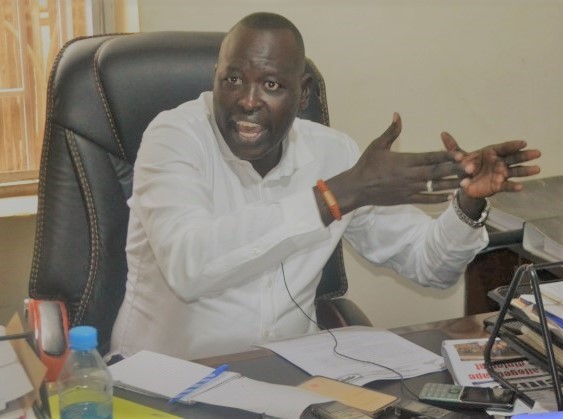By Bida Elly David
Trade Chamber cautions government against putting undue pressure on traders following a negotiated recent drop in fuel prices.
Central Equatoria State Chamber of Commerce chairperson, Robert Pitia raised concern after the Somali Community agreed to reduce fuel prices for a week.
In the Wednesday meeting with Nile Petroleum Corporation managing director, fuel dealers agreed on price decrease from 2,200 South Sudanese Pounds (SSP) to 2,000 SSP per litre, with immediate effect.
However, welcoming the decrease, Pitia expressed concerns about the sustainability of this measure due to the ongoing foreign exchange challenges.
He highlighted that the cost of transporting fuel from Kenya, which requires hard currency, significantly impacted the previous price increase.
“The ongoing inflation should be a lesson to the authorities,” Pitia warned.
“The government should understand that transportation costs from Kenya contributed to the price hike. Traders use hard currency to bring fuel into the country” he elaborated.
Mr. Pitia emphasized the urgency of addressing the dollar exchange rate.
“The market situation will remain volatile as the one-week period given to the government nears its end. It seems the government is searching for solutions, but things remain unclear because the dollar remains high” he stated.
The state chamber of commerce chair warned of potential hyperinflation if the government fails to intervene after the one-week timeframe, citing the potential desperation of traders.
“We hope that within this week, there will be a positive impact, with a tentative reduction in commodity prices,” Pitia said.
He further argued, “Any inflation triggered by money speculation always affects ordinary citizens who struggle to afford basic necessities.
Pitia clarified the Chamber of Commerce’s role, stating, they represent traders in the private sector and it is up to the government to implement resolutions from our meetings.
“We at the Chamber of Commerce, both at the state and national levels, have been urging the government to intervene in controlling the dollar and centralize the market. However, they haven’t done so, allowing traders to set prices as they see fit. Therefore, this is no longer our problem,” he added.




